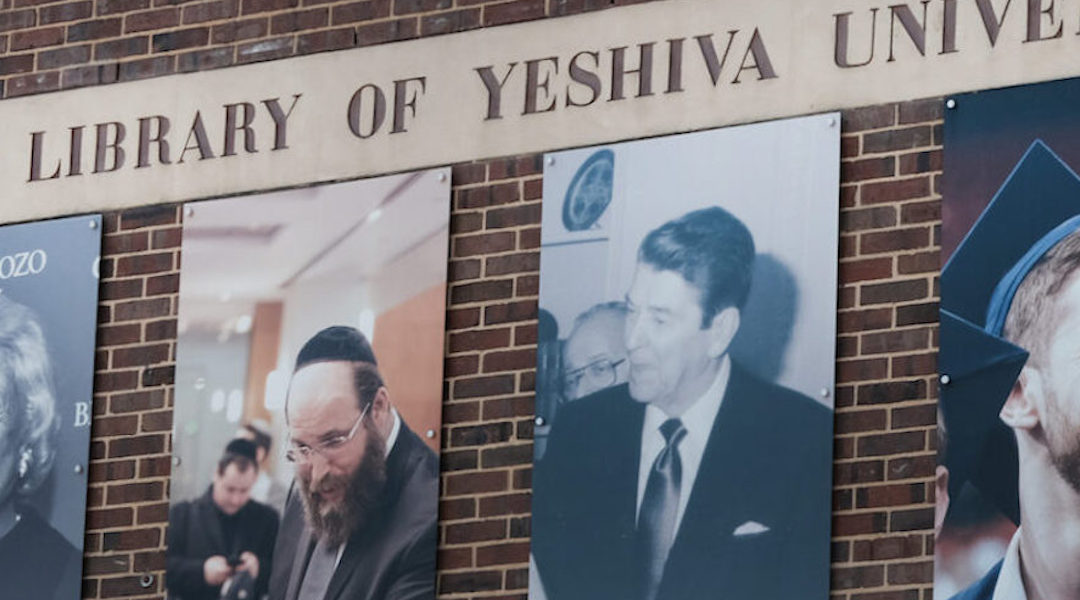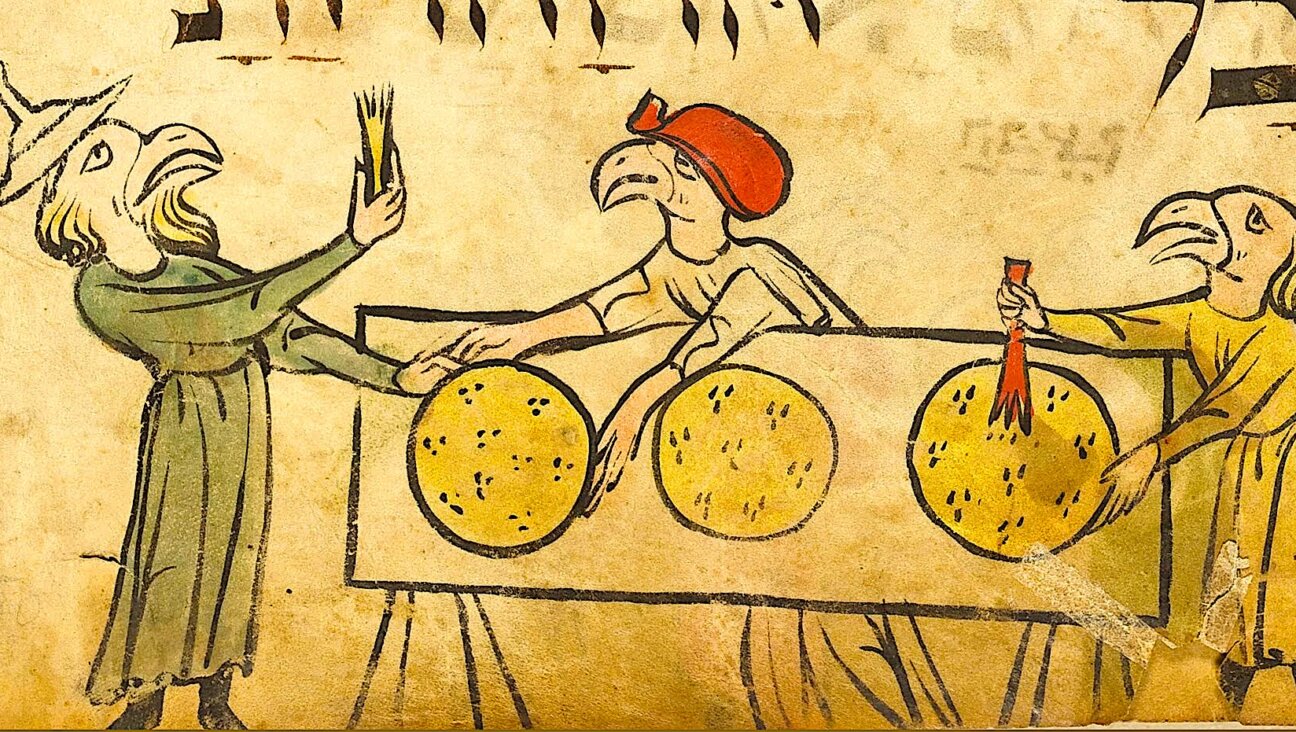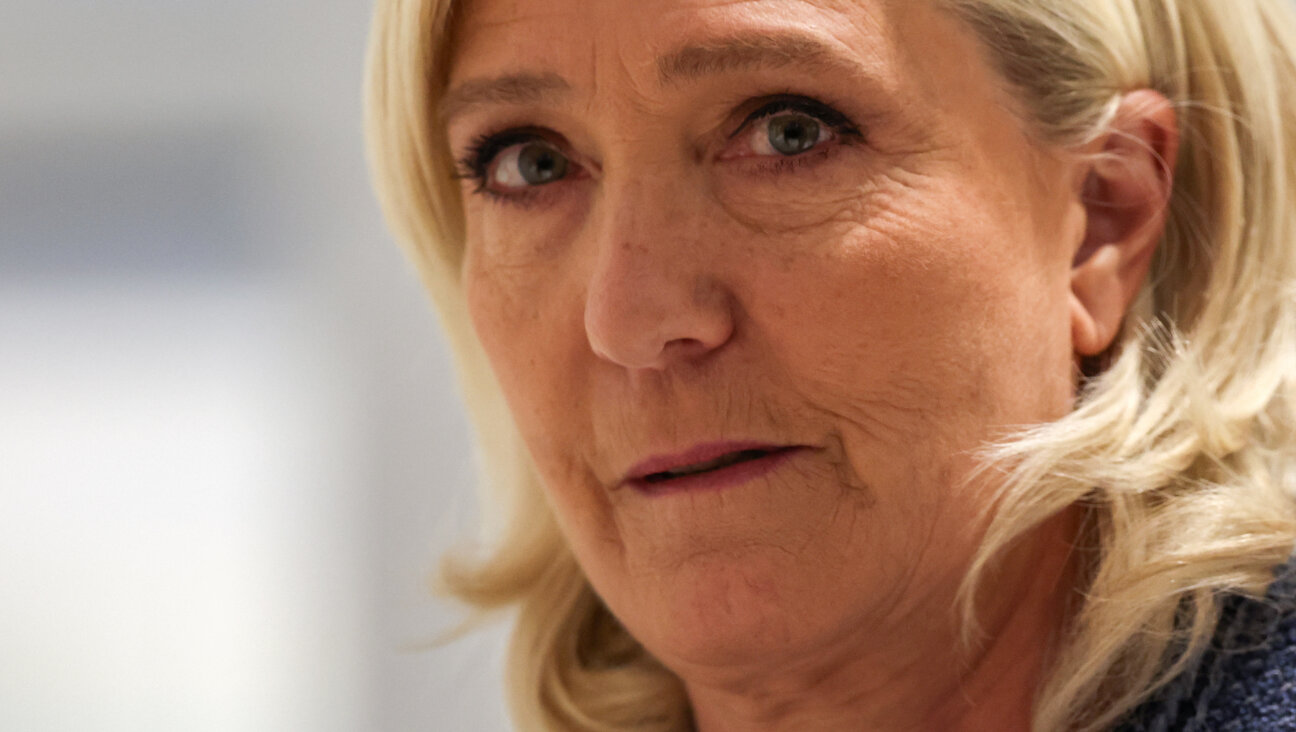Jewish Groups Set To Fight Veto of Hate-Crimes Bill
Washington – Jewish groups are gearing up to fight the president’s expected veto of a hate crimes bill opposed by Christian conservatives.
The measure, which broadens the authority of the federal government in dealing with hate crimes, is strongly opposed by the Bush administration and by the religious right, at least in part because it expands the definition of hate crimes to include violence motivated by discrimination based on gender or on sexual orientation.
Jewish organizations are playing a leading role in the coalition pushing the bill, with almost all of them — except the Orthodox ones — taking action to promote the passage of the measure. The Local Law Enforcement Hate Crime Prevention Act of 2007 passed the House floor last week, in a 237-180 vote. The Senate Judiciary Committee is expected to begin debating the bill within two weeks.
In past attempts, the hate crimes bill easily gained the support of a significant majority of the Senate. So, supporters of the bill said, they are expecting the major opposition to the measure to come from the White House and from Christian conservative groups.
In a letter to lawmakers, circulated on the day of the House vote, the administration made clear that it would take action to stop the bill, known as H.R. 1592, from becoming law. “If H.R. 1592 were presented to the President, his senior advisers would recommend that he veto the bill,” the letter stated.
The purpose of the bill, which has been in the works for 12 years, is to allow the Department of Justice to assist state and local law enforcement agencies in investigating and prosecuting hate crimes and, in certain instances, to take over the entire case.
The measure also broadens the definition of hate crimes to include those crimes motivated by bias based not only on race, religion and national origin but also on gender, sexual orientation and “gender identity.”
As a result, religious conservative groups argue that the measure could be interpreted as giving de facto federal recognition to gays and lesbians and restricting the freedom of speech of religious leaders who take a public stand against homosexuality. One of these groups, the Traditional Values Coalition, put out a flier depicting Jesus in a “wanted” poster for “violations of the proposed hate crime law in his teachings and in his book ‘The Bible.’”
While adding the sexual orientation and gender categories to the bill is widely regarded as the main impediment to getting it approved, the White House is formally stressing other problems it sees with the proposed legislation.
In the letter to Congress, the president’s executive office notes that there is no need for a new federal law, since states already have their own hate crimes legislation. The White House also argues that the bill raises constitutional questions because it federalizes criminal offenses that are under a particular state’s jurisdiction.
Michael Lieberman, Washington counsel for the Anti-Defamation League and chair of the coalition of 290 organizations supporting the hate crimes bill, rejected these arguments.
“Every major law enforcement organization in the country is backing this bill,” Lieberman said.
According to Lieberman, the main concern was never the constitutional questions. “If we’d drop the gender and sexual orientation issue, it would have passed 10 years ago, but we’re not going to do that,” he said.
According to the ADL official, sexual orientation is the third most common means of motivation for violent hate crimes, behind race and religion.
“People in the Jewish community have a strong memory and good understanding of the impact hate crimes have,” said Hadar Susskind, Washington director of the Jewish Council for Public Affairs. The JCPA mobilized tens of local Jewish groups to contact their congressmen on the issue.
Two Orthodox groups — the Orthodox Union and Agudath Israel of America — have serious concerns about the bill, but they are not taking any action for or against the measure. “We are still studying it,” said Nathan Diament, Washington representative of the Orthodox Union.
Diament did say that the Orthodox groups view as positive a provision added by the House, which makes clear that the bill does not infringe on religious rights. Abba Cohen of Agudath Israel said the group referred the bill to its rabbinical leadership in order for it to decide whether to support it in light of the new provisions that have been added.
In an effort to pressure the president not to use his veto pen to block this legislation, Jewish groups are organizing letters and meetings that aim to stress the importance that the Jewish community sees in passing the bill. Other groups will take similar action: mainstream Christian and other religious organizations, law enforcement agencies and women’s rights advocacy groups.
“We believe that after the president sees the support this bill has in the law enforcement community and with other groups, he will listen and sign the bill,” Lieberman said.
If this mobilization does not manage to convince the White House, supporters of the bill intend to attach the measure to a “must pass” piece of legislation, making it difficult for the president to exercise his veto.
The Forward is free to read, but it isn’t free to produce

I hope you appreciated this article. Before you go, I’d like to ask you to please support the Forward.
At a time when other newsrooms are closing or cutting back, the Forward has removed its paywall and invested additional resources to report on the ground from Israel and around the U.S. on the impact of the war, rising antisemitism and polarized discourse.
Readers like you make it all possible. We’ve started our Passover Fundraising Drive, and we need 1,800 readers like you to step up to support the Forward by April 21. Members of the Forward board are even matching the first 1,000 gifts, up to $70,000.
This is a great time to support independent Jewish journalism, because every dollar goes twice as far.
— Rachel Fishman Feddersen, Publisher and CEO
2X match on all Passover gifts!
Most Popular
- 1

News A Jewish Republican and Muslim Democrat are suddenly in a tight race for a special seat in Congress
- 2

Film & TV What Gal Gadot has said about the Israeli-Palestinian conflict
- 3

Fast Forward The NCAA men’s Final Four has 3 Jewish coaches
- 4

Fast Forward Cory Booker proclaims, ‘Hineni’ — I am here — 19 hours into anti-Trump Senate speech
In Case You Missed It
-

News Rabbis revolt over LGBTQ club, exposing fight over queer acceptance at Yeshiva University
-

Opinion In Qatargate fiasco, Netanyahu’s ‘witch hunt’ narrative takes cues from Trump
-

Yiddish די הגדה ווי אַ לעבעדיקער דענקמאָל פֿון אַשכּנזישער פּאָעזיעThe Haggadah as a living monument to Ashkenazi poetry
אַמאָל זענען די פּייטנים, מיסטישע דיכטער־וויזיאָנערן, געווען אויבן־אָן בײַ די פֿראַנצויזישע און דײַטשישע ייִדן.
-

Opinion Marine Le Pen may be headed to prison — antisemitism and xenophobia still roam freely
-
Shop the Forward Store
100% of profits support our journalism
Republish This Story
Please read before republishing
We’re happy to make this story available to republish for free, unless it originated with JTA, Haaretz or another publication (as indicated on the article) and as long as you follow our guidelines.
You must comply with the following:
- Credit the Forward
- Retain our pixel
- Preserve our canonical link in Google search
- Add a noindex tag in Google search
See our full guidelines for more information, and this guide for detail about canonical URLs.
To republish, copy the HTML by clicking on the yellow button to the right; it includes our tracking pixel, all paragraph styles and hyperlinks, the author byline and credit to the Forward. It does not include images; to avoid copyright violations, you must add them manually, following our guidelines. Please email us at [email protected], subject line “republish,” with any questions or to let us know what stories you’re picking up.














